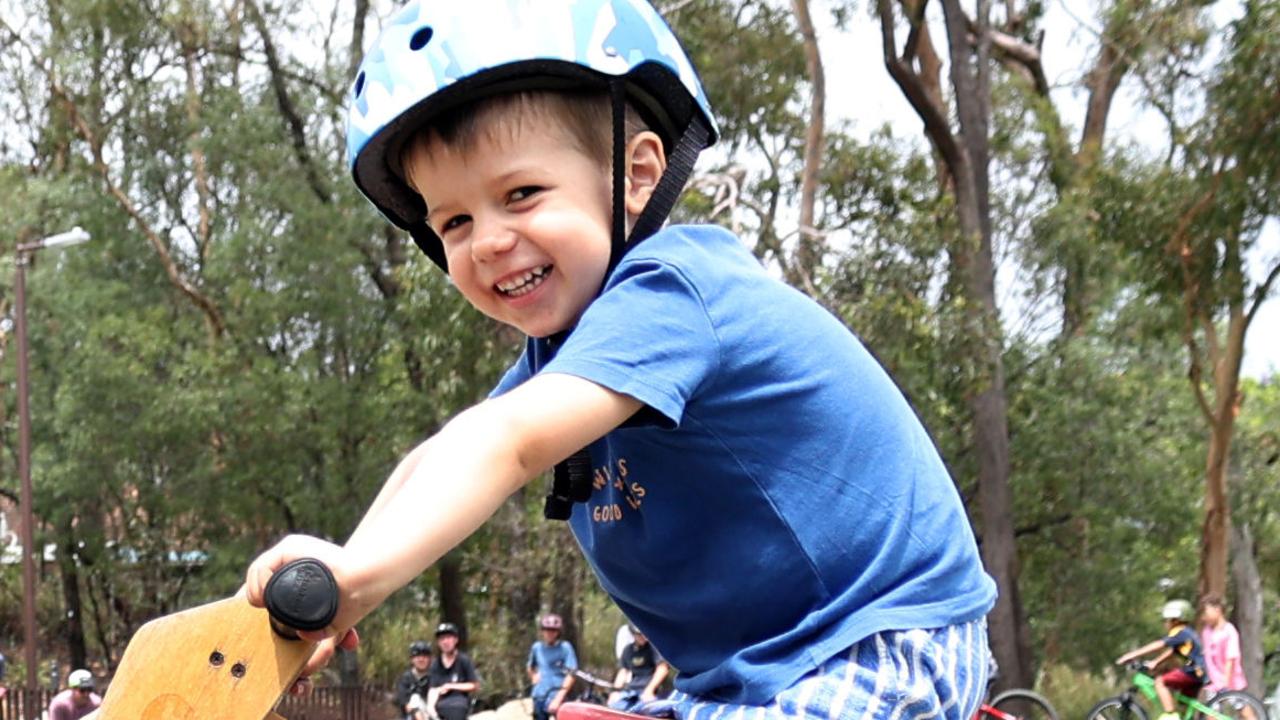Kids arriving hungry at early-learning centres, Queensland Brain Institute study finds
Some children are being dropped off at early-learning centres with little or no food from their parents, while other centres have in-house chefs preparing designer menus.

Early Education
Don't miss out on the headlines from Early Education. Followed categories will be added to My News.
Serious nutritional deficiencies have been uncovered in early-learning centres with hungry children struggling to learn and staff sacrificing their own food, according to new research.
A Queensland Brain Institute study found the quality and quantity of food provided by centres or supplied by parents was not good enough, particularly in low socio-economic areas.
At the other end of the scale, some ritzy inner-city centres offer weekly evolving three-course menus with full meals for their young minds that are prepared fresh by an in-house chef.
The QBI research team spent time in 10 early-learning centres in Brisbane, Logan, Ipswich and Caboolture.
Five provided food, the other half put the onus on parents to supply food.
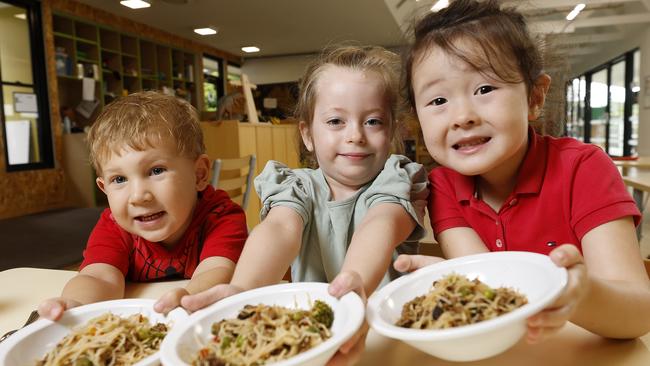
Queensland Brain Institute ARC Laureate Professor Karen Thorpe said the quality and quantity of food – whether it was provided or supplied by families – was not good enough.
“There were high levels of carbohydrates, no vegetables, and while there was some fruit, you would see fruit recycled over days, so you would have slimy bananas,” she said.
“But protein and vegetables were pretty near zero.
“In those services that didn’t provide food and asked parents to supply food, some kids were arriving hungry with not enough or any food to get them through the day.
“So we saw educators giving their own food away.
“Then later in the day, with educators and children not having had enough food, we saw an escalation and high levels of conflict between staff and children after the lunch break.”
In contrast, centres in affluent areas of Brisbane are serving full dishes for lunch such as teriyaki chicken and rice or pasta bake, with morning tea and afternoon tea.
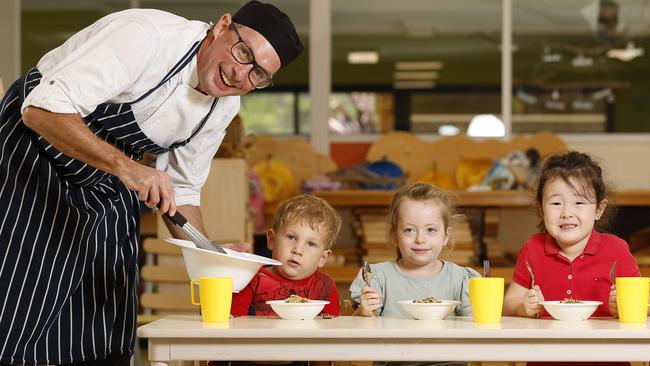
“We have visited services in two affluent areas of Brisbane where there was a chef who would also prepare food for families to take home at the end of the day – of course that costs, but it was a place where that is affordable,” Professor Thorpe said.
“Another one provided coffee and croissants for parents when they drop off in the morning and the chef provided a very nice range of food for children. So that’s one extreme.
“But we did see a group of services in Caboolture who employ a chef and provide nutritious food in a low-income area, so it is doable if it is a priority.”
Dr Sandra Cheesman, chief executive of kindy and childcare centre provider C&K, said the not-for-profit provided nutritious meals in all 39 of its childcare centres across the state, which are prepared by in-house cooks and chefs.
“Each C&K childcare centre has its own inclusive menu to meet the children’s preferences, allergies and cultural requirements and incorporate locally available food and produce,” she said.
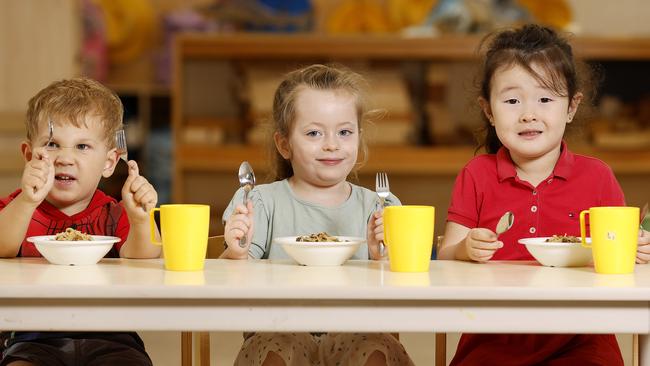
“All menus are revised four times a year to reflect seasonal availability and introduce children to a variety of flavours and ingredients.
“Children bring lunch boxes from home at C&K’s stand-alone kindergartens.
“We work together with families to promote healthy food choices and variety.”
Dr Cheesman said the cost of food had grown for families and early-learning providers, especially in rural and remote areas.
“It is important for families, providers and governments to work together to create a holistic early childhood development system,” she said.
“This includes supporting early childhood centres and families to work together to ensure children are having their nutritional needs met.”
Professor Thorpe said a US model could be part of the solution.
“Money is needed, but we need to make sure it is used to provide nutritious food,” she said.
“There is a US program where they give money not to the families, but to the centres, and there are very tight inspections to make sure the money is used to provide nutritious food that meets diary guidelines.”
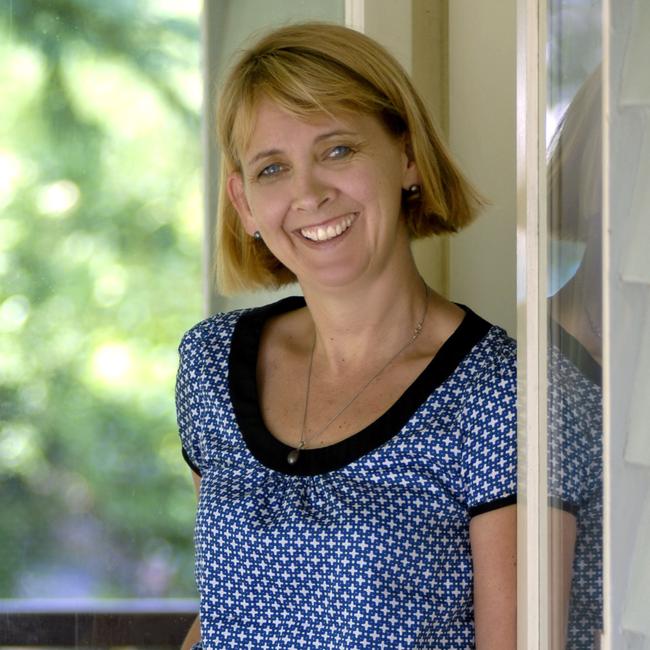
An Education Department spokesman said the more than 3000 early childhood education and care services in Queensland were regulated by the National Quality Framework.
“The decision to provide food in a service is a business decision made by the provider with the majority of providers being for-profit,” the spokesman said.
“National regulations set clear standards for food provision and quality in early childhood education and require that any food provided is both nutritious and adequate in quality as well as being chosen having regard to the dietary requirements of individual children.
“Where unsuitable, inadequate or unhealthy food is provided, the regulatory authority will not hesitate to take action against a service for non-compliance with the regulations, and they will be assessed as not meeting the National Quality Standard.
“Health and hygiene is a current regulatory priority for the Queensland early childhood regulator, meaning that all health-related requirements are regularly monitored and clear expectations are communicated to the sector regarding compliance and good practice.”




